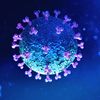Scientists Study Coronavirus Outbreaks in Europe's Mink Farms

MADRID, KOMPAS.com — Mink farms in Spain and the Netherlands have sent scientists looking for answers as to whether the animals could be a source of new coronavirus outbreaks.
Scientists are searching for answers on how the minks became infected with the Covid-19 virus and if the animals can spread it to humans.
Over 1 million minks at breeding farms in Spain and the Netherlands have been killed as a precautionary measure.
The virus that first infected people in China late last year came from an animal source, probably bats, and later spread from person to person, as other coronaviruses had done in the past.
Read also: Health Ministry Initiates Info Drive Against G4 Swine Flu in Indonesia
Some animals, including cats, tigers and dogs, have picked up the new coronavirus from people, but there hasn’t been a documented case of animals spreading it back to humans.
The outbreaks among the minks on farms in the Netherlands and Spain likely started with infected workers, although officials aren’t certain.
But it also is “plausible” that some workers later caught the virus back from the minks, the Dutch government and a researcher said, and scientists are exploring whether that was the case and how much of a threat such a spread might be.
The outbreak at the Spanish mink farm near La Puebla de Valverde, a village of 500 people, was discovered after seven of the 14 employees, including the owner, tested positive in late May, said Joaquín Olona, regional chief of agriculture and environment.
Two other employees got infected even after the operation was shut down.
More than 92,000 minks were ordered killed at the farm in the Aragon region of northeastern Spain, with nine out of 10 animals estimated to have contracted the virus.
After the Dutch outbreaks began in April, professor Wim van der Poel, a veterinarian who studies viruses at Wageningen University and Research, determined that the virus strain in the animals was similar to the one circulating among humans.
“We assumed it was possible that it would be transmitted back to people again,” the virus expert said, and that's what appeared to have happened with at least two of the infected workers.
Richard Ostfeld, a researcher at the Cary Institute of Ecosystem Studies in Millbrook, New York, said that if confirmed, these would be the first known instances of animal-to-human transmission.
Read also: Indonesian Health Ministry on Alert for New Swine Flu Strain


































